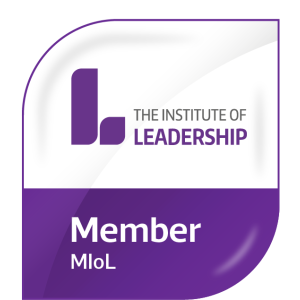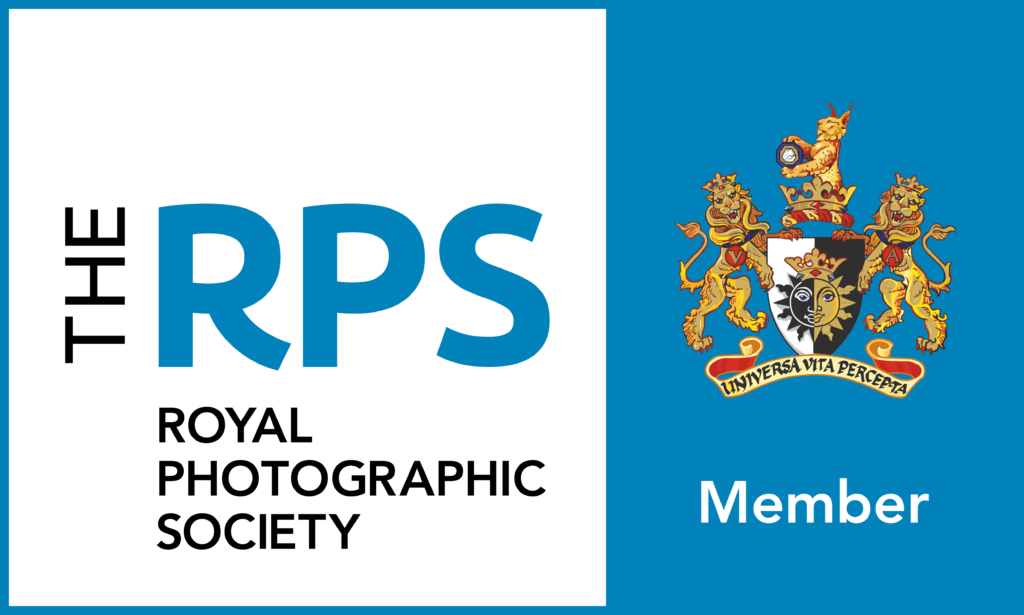Archive for June, 2022
Christian success comes from the Grace of God
Reflection for the Solemnity of SS Peter & Paul, 29 June 2022. Readings: Acts 12:1–11; Psalm 34:2-9; 2 Timothy 4:6-8, 17–18; St Matthew 16:13–19.

Christ chose St Peter as “the rock” upon which He would build His Church. But this is the same Peter who denied our Lord three times the night Jesus was arrested. He denied Him before the rooster crowed when being questioned by a servant girl—hardly the dependability you expect from a rock. It is said that St Peter wept for this sin at least once every day for the rest of his life, until there were two pale tracks down the skin of his face.
Christ chose St Paul to be the Church’s first and greatest missionary. Yet, St Paul started out as the leader of a violent persecution to crush the infant Church just after Christ’s Ascension. Christ chose him to announce the Gospel all over the ancient world, planting Christian communities in dozens of cities for almost thirty years. Paul was not chosen for his great public speaking or charismatic leadership. The Bible tells us that his critics despised him because “His letters are brawny and potent, but in person he’s a weakling and mumbles when he talks.” (2 Corinthians 10:10 (The Message)
How did these two men, so flawed, so human, become the two unshakeable pillars of the Church? What transformed them into saints, martyrs, and makers of history?
Put simply, it is the Grace of God. The same grace that has kept the Church growing for twenty centuries: the same grace we all received at baptism. On today’s Solemnity of SS Peter and Paul, God wants to remind us that our success and fulfilment as Christians depend more on His Grace than on our efforts.
What a relief that is!
The paintbrush and the gardener

One modern spiritual writer has expressed this truth by using the image of a painter. If you see a beautiful painting, you praise the painter for his genius and skill. Never would you praise the paintbrush. The paintbrush was just an instrument of the artist’s genius. Our lives are meant to be God’s masterpieces, but He is the great artist; we are like paintbrushes in His hands. We are unique paintbrushes, able to choose to jump out of the artist’s hands or move in a direction contrary to His will. We do that by giving in to selfishness and sin. Nevertheless, all the saints agree, they are but paintbrushes in the hands of the greatest artist in the world.
St Theresa of Avila expressed this truth using the image of a garden. She said the soul is like a garden, the plants in the garden are all the virtues: humility, patience, faith, hope, courage, and so on. All of these plants were planted by God Himself. Our job is to water them with prayer, to fertilise them with self-sacrifice. Watering and fertilising plants would have no effect, however, unless God Himself gave life to the seeds that He had planted there.
Making better use of confession

Admitting our need for God, and for the Grace of God is part of the virtue of humility. Humility is hard for every one of us, especially when we live in a culture that promotes self-sufficiency.
We’re surrounded by voices promising us success and peace of mind through new consumer products or new self-help techniques. Underlying all of this self-help-centred popular culture is that true success in life can be achieved solely by our own efforts. Of course, none of us really believes that. We know that only Christ can give our lives meaning. Although we have to do our part to follow Christ, His Grace is the real force behind fulfilment. As we live in this modern, self-help culture, it affects us, just as polluted water affects all who drink it.
God has given us a perfect antidote to the self-help-mentality pollution: the sacrament of confession.
Confession is a supply depot for God’s Grace. It never runs out, and it’s free. When we prepare for confession, the Holy Spirit helps us to see our sins, our failures, our weaknesses, so that we never forget our need for God. By going to confession, we give the virtue of humility an incredible workout. Most importantly, through sacramental absolution, we receive not only forgiveness, but also renewed strength to overcome our selfishness and live more Christ-like lives.
Saints Peter and Paul knew that without the Grace of God, they could do nothing. For that reason, God was able to work wonders in them and through them.
Going regularly to confession, every two weeks, or every month, is a wise and easy way to follow in their footsteps. I, like everyone else, should really get back to it.
Security: placing it in God not ourselves
Some thoughts for the Thirteenth Sunday in Ordinary Time (Year C), Sunday 26 June 2022.
Following Christ means transferring our security
In today’s Gospel we read that Our Lord Jesus Christ is travelling to the city of Jerusalem for the last time. Along the way, He meets three men who have heard His call in their hearts. These encounters teach us three tough lessons about what it means to follow Christ. However, I’m only going to concentrate on one of them.
To follow Christ, we have to transfer our sense of security. We have to relocate it from ourselves to God. We have to unlearn our lifelong lesson of relying on ourselves for success and happiness. We have to learn to rely wholly upon God, plugging all our efforts in life into His Grace.
This is what Our Lord Jesus Christ means when He says that,
Foxes have holes, and birds of the air have nests; but the Son of man has nowhere to lay his head.
St Luke 9:58 RSVCE
Christ is trustworthy, but He is not predictable. When we follow Him, we have to agree to go one step and one day at a time. He refuses to give us a full route map in advance. When we follow Him, we have to stop pretending that we can keep our lives under control all by our own efforts. In accepting the friendship of Christ, we agree to follow Him, to put our lives under His leadership.
We know by looking around us that foxes and birds have the security of their instincts and natural habitats. Christians, however, are on an unpredictable adventure. We simply do not know where God will lead us. We do not know what He may ask us to do. When we join Christ’s army, we have to hand him a blank cheque.
Elisha’s example
The prophet Elisha gives us an eloquent example of this transferal of security in the First Reading. When Elijah comes and calls him to become his successor as Israel’s prophet, Elisha goes back home to tie up loose ends. And he really ties them up. Elisha was a farmer, where his whole livelihood, his whole way of life, was linked to the farm. This was how he made his way in the world. Up until the time of his calling, this was the source of his security.
But, when God makes His will known, Elisha doesn’t hesitate to break completely with that former way of life. He doesn’t just leave the farm behind. He actually slaughters the most important farm animals and burns his most precious tools. In so doing, he offered them to the Lord as a sign that from now on he will depend on God for his livelihood and his happiness.
Not everyone is called to serve God in this way, not everyone is called to consecrate themselves completely to the Church. But all Christians are called to make a spiritual offering to God of our oxen and our ploughs, of those things, talents, or activities that we tend to depend on instead of depending on God.
God can only fill our lives with the meaning and fruitfulness we long for if we put Him first, trusting that He will lead us better than we can lead ourselves.
Resurrecting the Morning Offering
Each one of us wants to make this transfer of security from self to God. That is why we are at Mass. We know that we need God. We know that only by depending more fully on Him will our lives take on the meaning and fruitfulness for which we all long.
But how do we do it? How can we become more faithful followers of Our Blessed Lord, more hope-filled disciples, more stable and authentic Christians? This transfer of security from self to God is a virtue. It is the virtue of hope. Like all Christian virtues, this one was planted in our souls like a seed when we were baptised. It is already there. We just have to help it grow. We do this by exercising it.
One of the most effective ways to exercise this virtues is by practising the long-standing tradition of beginning the day with what is called a prayer of “morning offering”. Like all exercises, physical, mental, or spiritual, it is better if it is done regularly. Daily, if possible.
This is a prayer that we say before the day begins — maybe right when we get out of bed, maybe after showering, before we go to breakfast. It’s a short prayer, but everything is put in perspective:
Thanking God for the gift of another day;
Asking God for guidance and protection;
Renewing our commitment to accept and do whatever He asks of us as we continue on the adventure of following His unpredictable path.
This week, let’s resurrect this wise tradition, so we can all exercise more energetically this great virtue of hope, a virtue that foxes and birds don’t need, but that is absolutely essential for us.
Today, Jesus will come to us once again to assure us of His all-powerful Love. When He does, let us assure Him of our trust. Nothing will please Him more.
Sample morning offerings
A modern version
O eternal and ever-blessed Trinity, Father Son, and Holy Spirit, with all the angels and saints, I adore you. From the bottom fo my heart I thank you for all the favours and benefits you have bestowed upon me, but especially for having preserved me during the night, and for giving me this day to serve you. I wish to live only for you, for greater honour and glory, and for the salvation of souls. O good God, preserve me this day from all sin and all occasion of sin.
O loving God, I begin this work day by offering everything I am and do to you. Help me accomplish all the day’s necessary tasks, to be wise in making decisions and earnest in completing my work. Let nothing distress or overwhelm me. Help me to depend on you for the energy, wisdom, and courage I need to do an honest day’s work. And then help me to let go of any concerns and anxieties. Amen.
A traditional version
O Jesus through the most pure Heart of Mary, I offer You all my prayers, works, joys, and sufferings of this day, for all the intentions of Your Sacred Heart, in union with the Holy Sacrifice of the Mass throughout the world, in reparation for my sins, and in particular for the intentions of the Holy Father the Pope. Amen.
Accessibility issues at Iarnród Éireann lifts
For the last few weeks, travelling between Monasterevin and Port Laoise, I have noticed new signage at the lifts at stations on the Iarnród Éireann network. Helpfully this signage has large clear icons next to the instructions to aid understanding. The instructions are shown both as Gaeilge and in English. There is an additional line of Braille under the instructions to improve accessibility. All of this is much better than the previous signage. However, I have spotted a couple of issues with what is displayed, and have highlighted these to Iarnród Éireann.
First of all, the second and third of the large clear icons seem to be in the wrong places. The second instruction,
Brúitear an cnaipe / Press button
has a speaking telephone indicated next to it.
The third instruction,
Labhair leis an oibreoir / Speak to operator
has a Press button icon next to it.
It seems to me that no one checked the signs before they were printed. Since they are on all the updated and improved lifts on the network, it seems a significant waste of money to have allowed them to go to press without checking that they were correct.
Secondly, while it is fantastic to see Braille appearing on signage to improve accessibility for those with sight difficulties, it is disappointing to see that the Braille is up only in English. Ireland is a bilingual country. We have a national language, Irish, and a second official language, English. (Article 8, Bunreacht na hÉireann). Since 2014, there has been an Updated Irish Braille standard, approved by the Irish National Braille and Alternative Format Association. I accept that there may be accessibility issues in having Braille up in more than one language, but surely there is some way of managing this? Given we have both the Irish and the English in the latin characters on the signage, can we not have both Irish and English Braille as well?
I have raised both these issues via Twitter:
I will report back if there is any major response from Iarnród Éireann.
A sound from my past
As an aside, I have fond memories of waking up at my grandparents’ house in Cornwall to the sound of the Perkins Brailler being used by my grandfather. He used to help the RNIB by Brailling books for them. It was a very comforting sound throughout my teenage years when staying there.












